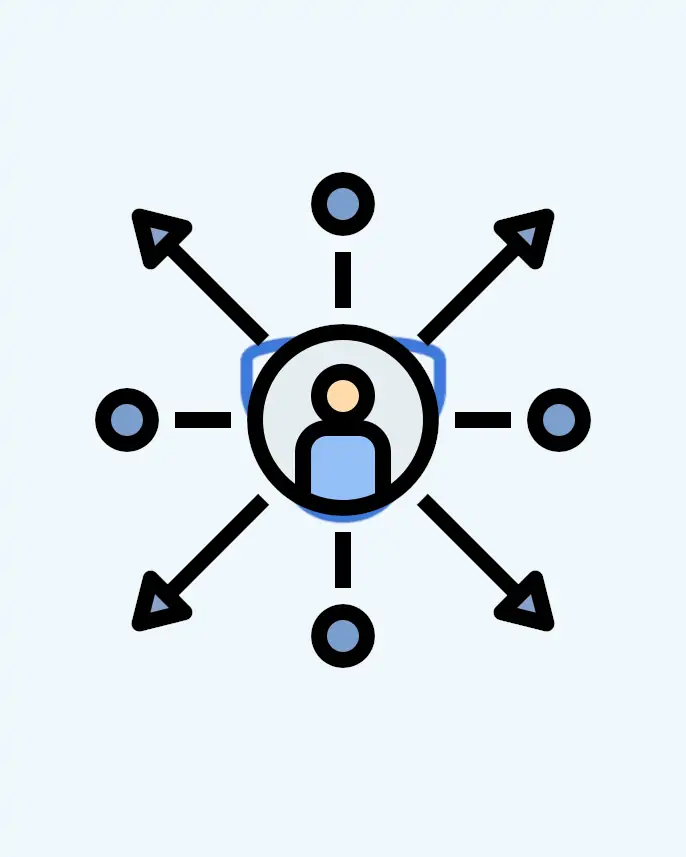In recent years, decentralization has emerged as a buzzword in various fields, from finance to governance and technology. But what exactly does decentralization mean, and why is it gaining so much attention? This article aims to demystify decentralization by exploring its principles and applications. By the end, you’ll have a clear understanding of this concept and its potential impact on different domains.
Defining Decentralization
Decentralization refers to the distribution of power, authority, and decision-making away from a central authority or governing body. In centralized systems, decision-making and control reside in a single entity, whereas decentralization aims to distribute these responsibilities across multiple participants or nodes.
Principles of Decentralization
- Distributed Authority: Decentralization involves sharing authority among multiple participants. Instead of a single entity making all the decisions, power is distributed to various individuals, organizations, or nodes. This distributed authority promotes transparency, accountability, and prevents the concentration of power.
- Autonomy: Decentralization grants autonomy to individual participants or nodes. Each entity has the freedom to make decisions within its scope, enabling faster and localized decision-making. This principle allows for adaptability and responsiveness to local needs and conditions.
- Redundancy: Decentralized systems often incorporate redundancy, meaning there are multiple copies or instances of critical components or data. Redundancy helps enhance system resilience and reduces the risk of failure or disruption, as alternative options are available when one component fails.
- Trust and Security: Decentralization aims to promote trust and security through distributed consensus mechanisms. Rather than relying on a central authority, decentralized systems utilize cryptographic techniques and consensus algorithms to ensure data integrity, prevent fraud, and protect against malicious activities.
Applications of Decentralization
- Blockchain Technology: Blockchain, the underlying technology behind cryptocurrencies like Bitcoin, is a prime example of decentralized systems. It allows for secure and transparent peer-to-peer transactions without the need for intermediaries, such as banks. Blockchain’s decentralized nature ensures data immutability and eliminates the risk of a single point of failure.
- Decentralized Finance (DeFi): DeFi leverages blockchain and smart contract technologies to revolutionize traditional financial systems. By eliminating intermediaries and enabling direct peer-to-peer transactions, DeFi offers financial services such as lending, borrowing, and trading, accessible to anyone with an internet connection. It empowers individuals, reduces costs, and increases financial inclusivity.
- Decentralized Governance: Traditional centralized governance structures are being challenged by decentralized governance models. Decentralized Autonomous Organizations (DAOs) utilize blockchain technology to enable collective decision-making and transparent governance. DAOs provide a framework for stakeholders to participate, vote, and influence the direction of an organization without relying on a centralized authority.
- Internet and Data Privacy: Centralized data storage and online platforms have raised concerns over data privacy and security. Decentralized solutions, such as decentralized internet protocols and peer-to-peer networks, aim to give individuals greater control over their data, reducing reliance on centralized platforms and mitigating privacy risks.
- Energy and Power Distribution: Decentralization can be applied to energy and power distribution systems. Distributed energy resources, such as solar panels and wind turbines, enable localized power generation and reduce reliance on centralized power grids. This approach promotes renewable energy adoption, improves energy efficiency, and enhances grid resilience.
Conclusion
Decentralization represents a paradigm shift in various domains, challenging traditional centralized models. Its principles of distributed authority, autonomy, redundancy, and trust have found applications in blockchain technology, finance, governance, data privacy, and energy systems. Understanding decentralization is crucial as it has the potential to reshape industries, empower individuals, foster innovation, and promote more transparent and inclusive systems. As this concept continues to evolve, embracing its principles can lead to a more equitable and resilient future.
